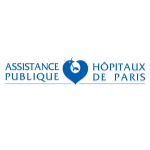Restoration of hand Functions in Tetraplegia through Selective Neural Electrical Stimulation
The AGILIS project aims to deliver an innovative implanted stimulation device to enable individuals with tetraplegia to use their hands for functional grasping, thereby increasing their autonomy.
Individuals with high tetraplegia are completely dependent on caregivers for more than eight hours a day. AGILIS was created to develop an innovative solution to increase their autonomy by enabling them to handle common daily activities, such as washing, eating or self catheterising.
The project is led by INRIA, a French members of EIT Health specialised in research, digital sciences, scientific excellence and technology transfer. INRIA is joined by other EIT Heath members from France and Germany: hospitals group APHP and Heidelberg University, a renowned public research university in Europe. Neurinnov will develop the envisioned medical device. Hospital La Châtaigneraie will follow up with the patients after the implantation. AGILIS is developing a medical device to increase the autonomy of individuals with tetraplegia by helping to restore the fundamental use of their hands.
AGILIS proposes to use only two neural electrodes to pilot hand extension and flexion movements: multicontact cuff electrodes placed around nerves will activate different muscles depending on the contacts’ configuration and stimulation parameters. These neural electrodes will be implanted in five patients for 30 days, during which time:
- The electrode configuration will be optimised for each patient and progression of performance will be assessed longitudinally.
- An intuitive interface will be designed to allow the user to pilot the assistive device and increase technology embodiment. Different sensors will be tested (electromyography and Inertial Measurement Units among them).
- Functional performance progress and perceived usefulness of the device will be evaluated.
The outcome anticipated from the work of the AGILIS project is to deliver optimisation results of the selectivity of electrodes and stimulation configurations after going through a clinical trial.
Impact
This project will benefit patients and the healthcare system, as the patient’s will gain greater independence while the cost of caring for them will decrease greatly. The AGILIS medical device represents a real advance in health innovation, because no solution exists to allow people with tetraplegia to use their hands. Furthermore, this generic technology could address other severe sensory-motor deficiencies in the future, as an envisioned market extension.
Why this is an EIT Health project
This project is in keeping with the core EIT Health goal of improving healthcare. The project is also aligned with the EIT Health Focus Area of “Care Pathways”, as it promises to improve the living conditions of patients suffering from tetraplegia.
Members

CLC/InnoStars: France
Partner classification: Tech Transfer, Clusters, Other NGOs, Hospital / University Hospital
Partner type: Core Partner
We are a teaching hospital with a European dimension globally recognized. Our 39 hospitals attended each year 8 million sick people: consultation in emergency hospitalizations during scheduled or home hospitalization. We provide a public health service for all, 24/24, and it is for us both a duty and pride.
Assistance Publique - Hôpitaux de Paris
Assistance Publique - Hôpitaux de Paris, 1 Avenue Claude Vellefaux, 75010 Paris, France


CLC/InnoStars: Germany
Partner classification: Education, Research, Tech Transfer, Clusters, Other NGOs, Hospital / University Hospital
As a comprehensive university, Heidelberg offers, in collaboration with its university hospital, a fertile ground for innovations in the different action fields of healthy living & active ageing by drawing on insights from all academic disciplines.
Heidelberg University
Heidelberg University, Seminarstraße 2, 69117 Heidelberg, Germany
Key Activities in Research and Developement
Biomedical engineering, Life Sciences, Social sciences / health economics, Clinical research
Key Activities in Social Innovation
Healthcare provision, Payers
Key Activities in Business Creation
Incubation, Technology Transfer
Key Activities in Education
Entrepreneurship training, Technical faculties, Medical faculties, Healthcare professional education/training


CLC/InnoStars: France
Partner classification: Research
Inria, the French National Institute for computer science and applied mathematics, promotes scientific excellence for technology transfer and society. 3000 researchers, nearly 200 teams, 20+% dedicated to life sciences and healthcare questions. Inria, the French National Institute for computer science and applied mathematics, promotes “scientific excellence for technology transfer and society”. Graduates from the world’s top universities, Inria's 2,700 employees rise to the challenges of digital sciences. With its open, agile model, Inria is able to explore original approaches with its partners in industry and academia and provide an efficient response to the multidisciplinary and application challenges of the digital transformation. Committed to assisting innovators, Inria provides the ideal conditions for fruitful relations between public research, private R&D and industry. Inria transfers its expertise and research results to startups, SMEs and major groups in fields as diverse as healthcare, transport, energy, communications, security and privacy protection, smart cities and the factory of the future. Inria has also fostered an entrepreneurial culture that has led to the creation of 120+ startups.
Key Activities in Corporate Innovation
ICT
Key Activities in Business Creation
Incubation, Finance & Investment, Technology Transfer
Key Activities in Education
Entrepreneurship training, Technical faculties
